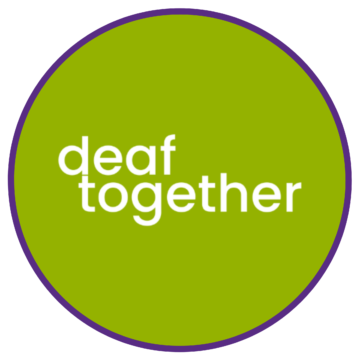New report reveals poor access to NHS services and sets out urgent steps required to meet the communication needs of Deaf and other disabled people.
The review is informed by patients, with contributions from 714 disabled people with communication needs, and 196 professionals from health and social care providers through an anonymous survey.
81 per cent of patients reported having a health appointment when their communication needs were unmet. Half of Deaf people reported that their needs were rarely or never met.
“Fed up always having to argue and say it’s my right to have an interpreter – why have they for 18 years wanted my family to interpret for me! My health is my business.”
– Deaf patient
A lack of an accessible method for contacting GP surgeries and the COVID challenge of masks for those who rely on lip-reading were also frequently reported as serious barriers for patients to even make initial contact.
The Deaf health charity SignHealth has worked in partnership with a coalition of charities to review implementation of the NHS Accessible Information Standard (AIS). The results show widespread failure to implement the Standard across the NHS. Over one third, 37 per cent, of healthcare professionals surveyed said they have never received any training linked to the AIS, despite it being introduced over five years ago.
One NHS professional stated in the anonymous survey, “No training or resources, both in terms of people and tools we may need, have been put in place to support the implementation of the AIS.”
This has led to significant health inequalities for Deaf and other disabled people. It puts patient health at risk through misdiagnosis, inadequate medication information, missed appointments and delays due to communication failures.
Urgent priorities for change
“Health is central to life, and yet people are currently being denied good healthcare due to poor access, leading to health inequalities. Many of the actions required to improve access to services, communication with healthcare providers, and long-term condition management are simple and cost-neutral, or cost-saving, if implemented correctly.” – Abigail Gorman, Policy and Public Affairs Manager at SignHealth
“This report provides even more evidence that Deaf and other disabled people are being excluded from public services. It is unacceptable for only one in ten disabled people to have equitable access to healthcare, particularly when the right to do so is protected in law. This has to change. SignHealth and the other charities involved in this report are ready to help fix it once and for all. Will the NHS work with us to do that?” – James Watson-O’Neill, Chief Executive, SignHealth
The report calls for these urgent, simple measures to be taken to ensure people can access the healthcare they need:
Full report and recommendations available here: https://signhealth.org.uk/resources/research/aisreview/
ENDS ====
For media enquiries or comment:
Laura Woodbury, Communications Manager at SignHealth, lwoodbury@signhealth.org.uk
Note to editors:
The NHS Accessible Information Standard seeks to establish a clear, consistent approach to the information and communication support needs of patients, service users, caregivers, and parents with a disability, impairment, or sensory loss. The Standard states that patients should:
- Be able to contact and be contacted by, services in accessible ways, for example via email or text message
- Receive information and correspondence in formats they can read and understand, for example, in audio, braille, easy read or large print
- Be supported by a communication professional at appointments if this is needed to support conversations, for example a British Sign Language interpreter
- Get support from healthcare providers to communicate for example to lip-read or use a hearing aid.
Poor access, misunderstandings, and communication barriers leads to poorer health outcomes for Deaf people, Sick Of It report, 2014.
SignHealth partnered with the Royal National Institute of Blind People (RNIB), Healthwatch England, Learning Disability England, Macular Society, Royal Association of Deaf People, Royal National Institute for Deaf People (RNID), Sense and Visionary to collect experiences from patients and health professionals across England for this review.
Join the conversation at #AccessToHealth

SignHealth is the Deaf health charity led by Deaf people at all levels of the organisation. We are dedicated to making sure Deaf people get equitable access to healthcare. We also provide services to improve Deaf people’s health and wellbeing.
SignHealth has media-trained Deaf people who use British Sign Language to communicate, as well as access to registered BSL interpreters, ready to be interviewed to support this statement.
For more information about SignHealth, visit signhealth.org.uk and follow us on Twitter, Instagram and Facebook at @SignHealth

Review of the NHS Accessible Information Standard
Urgent priorities for change, informed by patients’ lived experience and NHS professionals.
Report




